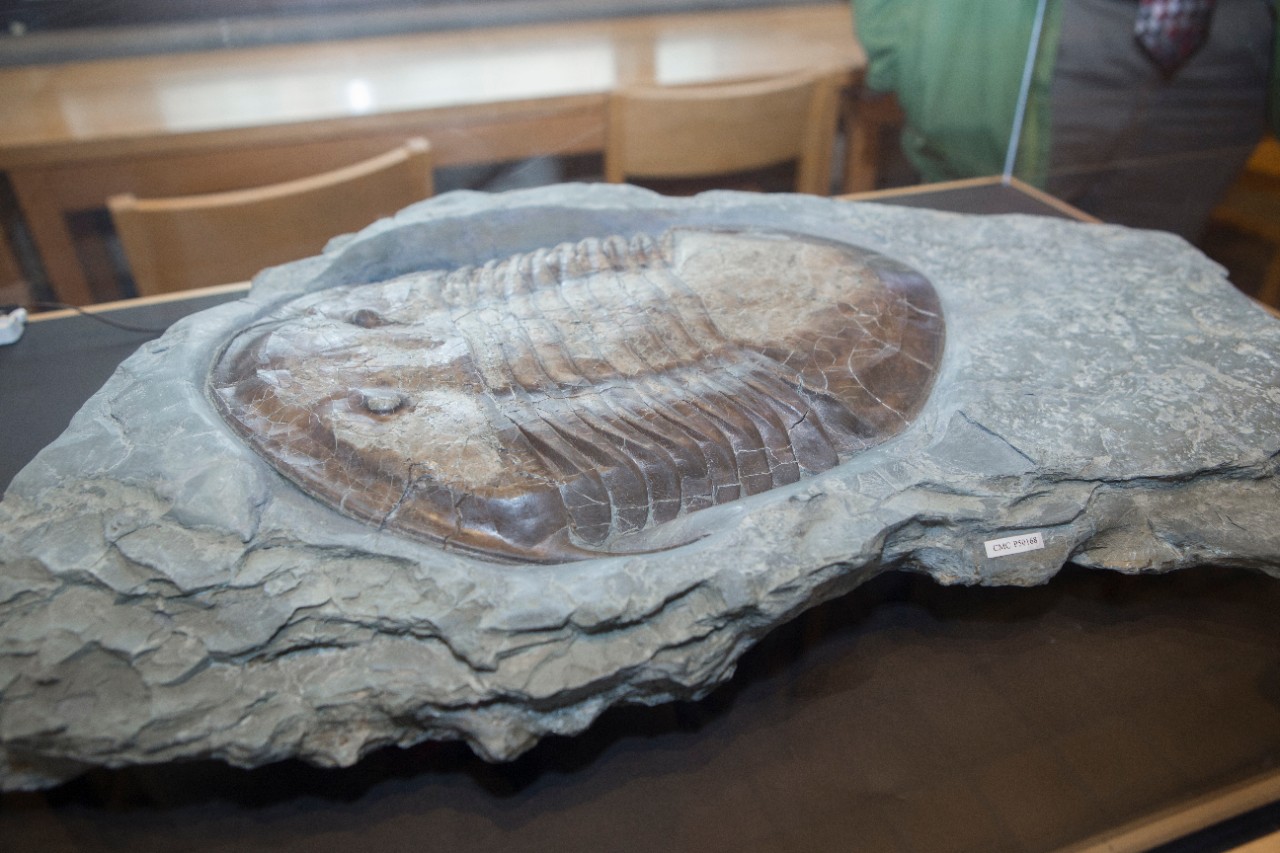
Discover: What caused the Devonian extinction?
UC geology professor Thomas Algeo shares his theory
Discover Magazine turned to a University of Cincinnati geologist to learn more about what caused a mass extinction about 360 million years ago.
The Devonian extinction wiped out as many as 80% of animal species. Wildlife of the Devonian ranged from trilobites to prehistoric precursors of amphibians. The Devonian is known as the Age of Fishes for the great diversity of marine life it spawned.
UC College of Arts and Sciences geology professor Thomas Algeo said the Devonian saw the vast proliferation of vascular plants as well that turned the Earth green with new life: mosses, ferns and trees. Meanwhile, marine life also flourished.

UC geologist Thomas Algeo. Photo/Joseph Fuqua II/UC Marketing + Brand
So what happened?
The extinction coincided with a period of global cooling, likely from volcanic eruptions that covered the sky in sun-reflecting ash. Scientists have also observed the crash of dissolved oxygen in the water required to support marine life, which would have wreaked havoc with the food chain.
“The two leading theories are cooling and the spread of anoxia in the marine environment,” Algeo told Discover Magazine. “The fact of the matter is that they both occurred simultaneously, and they both may have played a role.”
But what caused the oceans to lose oxygen?
Algeo said the explosion of new plant life on Earth for the first time generated a wealth of nutrients or fertilizer that ended up in the water. This created enormous algae blooms. When algae dies, the resulting decomposition removes oxygen from the water, creating vast dead zones.
Algeo said Devonian mass extinction has a lot in common with the current mass extinction we're witnessing today because it has a biological origin: humans.
“It’s important to try to understand the trajectory of events and how they ripple through the biosphere at large in order to try and prevent the worst effects of mass extinction in the future,” Algeo told Discover.
Read the Discover Magazine story.
Featured image at top: A fossilized trilobite on display in UC's Geology Department. Photo/Joseph Fuqua II/UC Marketing + Brand

Scientists believe volcanic eruptions played a role in the Devonian mass extinction more than 360 million years ago. Illustration/Margaret Weiner/UC Marketing + Brand
Related Stories
Before the medals: The science behind training for freezing mountain air
February 19, 2026
From freezing temperatures to thin mountain air, University of Cincinnati exercise physiologist Christopher Kotarsky, PhD, explained how cold and altitude impact Olympic performance in a recent WLWT-TV/Ch. 5 news report.
Discovery Amplified expands research, teaching support across A&S
February 19, 2026
The College of Arts & Sciences is investing in a bold new vision for research, teaching and creative activity through Discovery Amplified. This initiative was launched through the Dean’s Office in August 2024, and is expanding its role as a central hub for scholarly activity and research support within the Arts & Sciences (A&S) community. Designed to serve faculty, students, and staff, the initiative aims to strengthen research productivity, foster collaboration, and enhance teaching innovation. Discovery Amplified was created to help scholars define and pursue academic goals while increasing the reach and impact of A&S research and training programs locally and globally. The unit provides tailored guidance, connects collaborators, and supports strategic partnerships that promote innovation across disciplines.
What is a Trump Account and what is its impact for college savings?
February 18, 2026
Jack Miner, vice provost for enrollment management at the University of Cincinnati, joined WVXU's Cincinnati Edition to discuss a new college savings plan that was approved with passage of the One, Big, Beautiful Bill.
